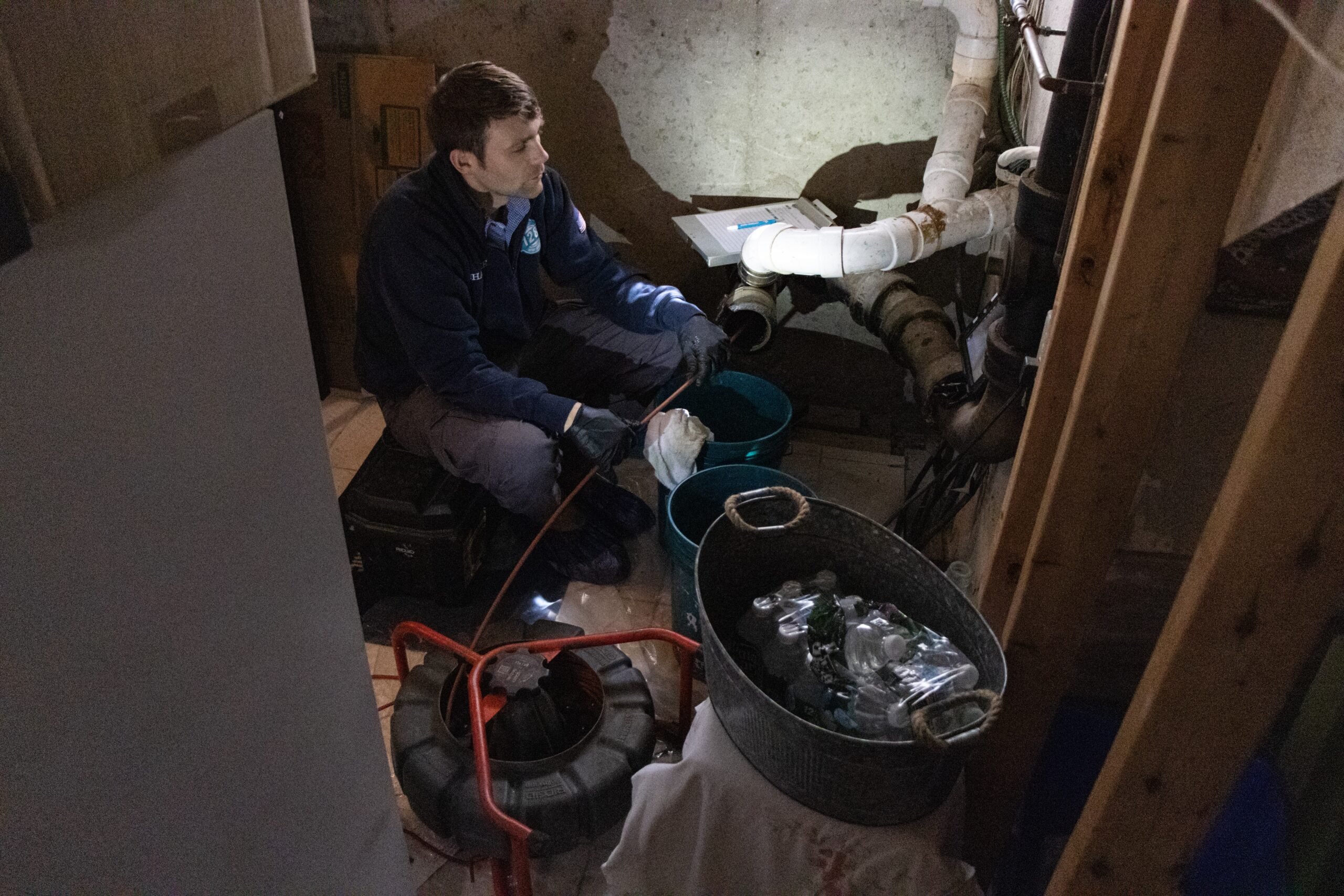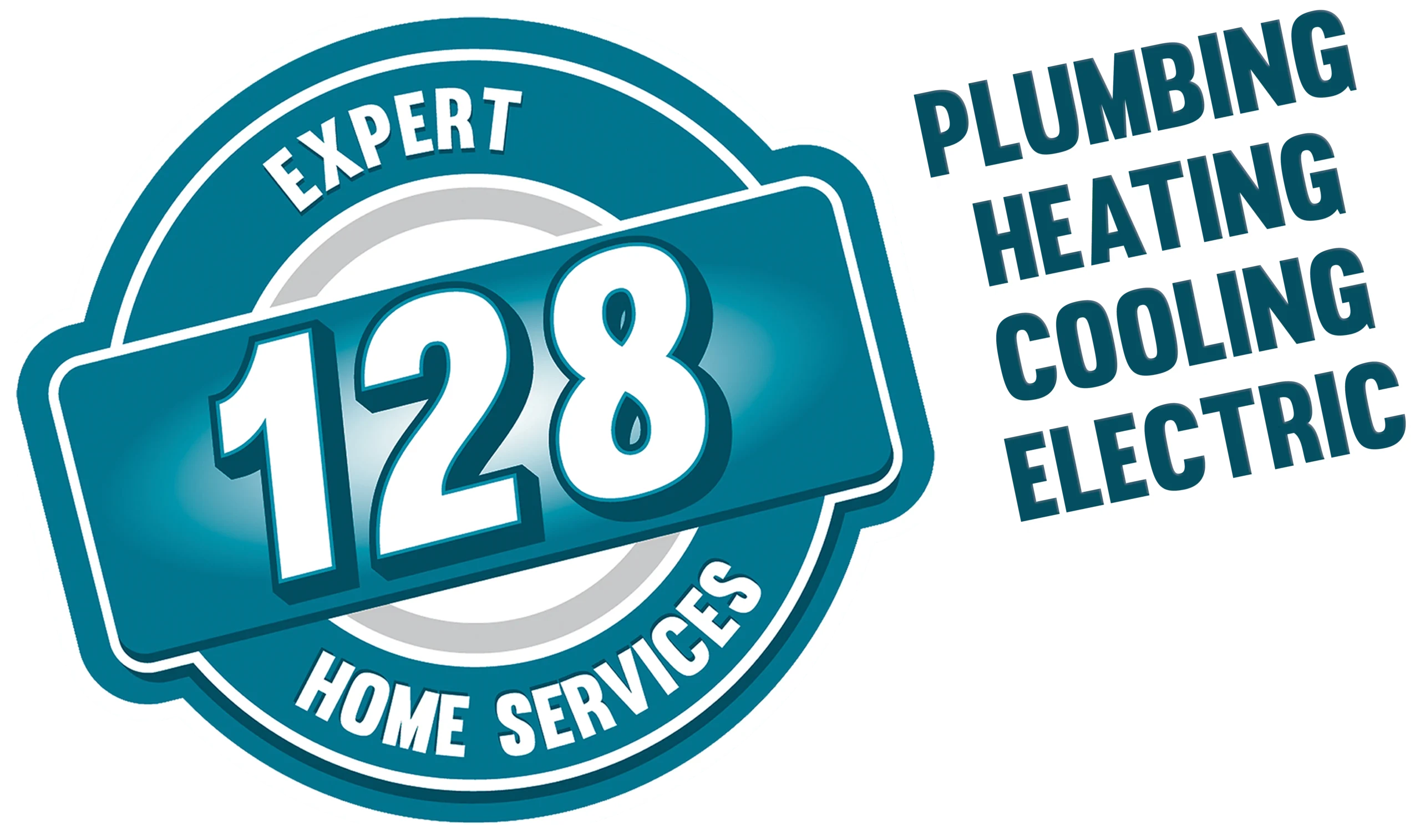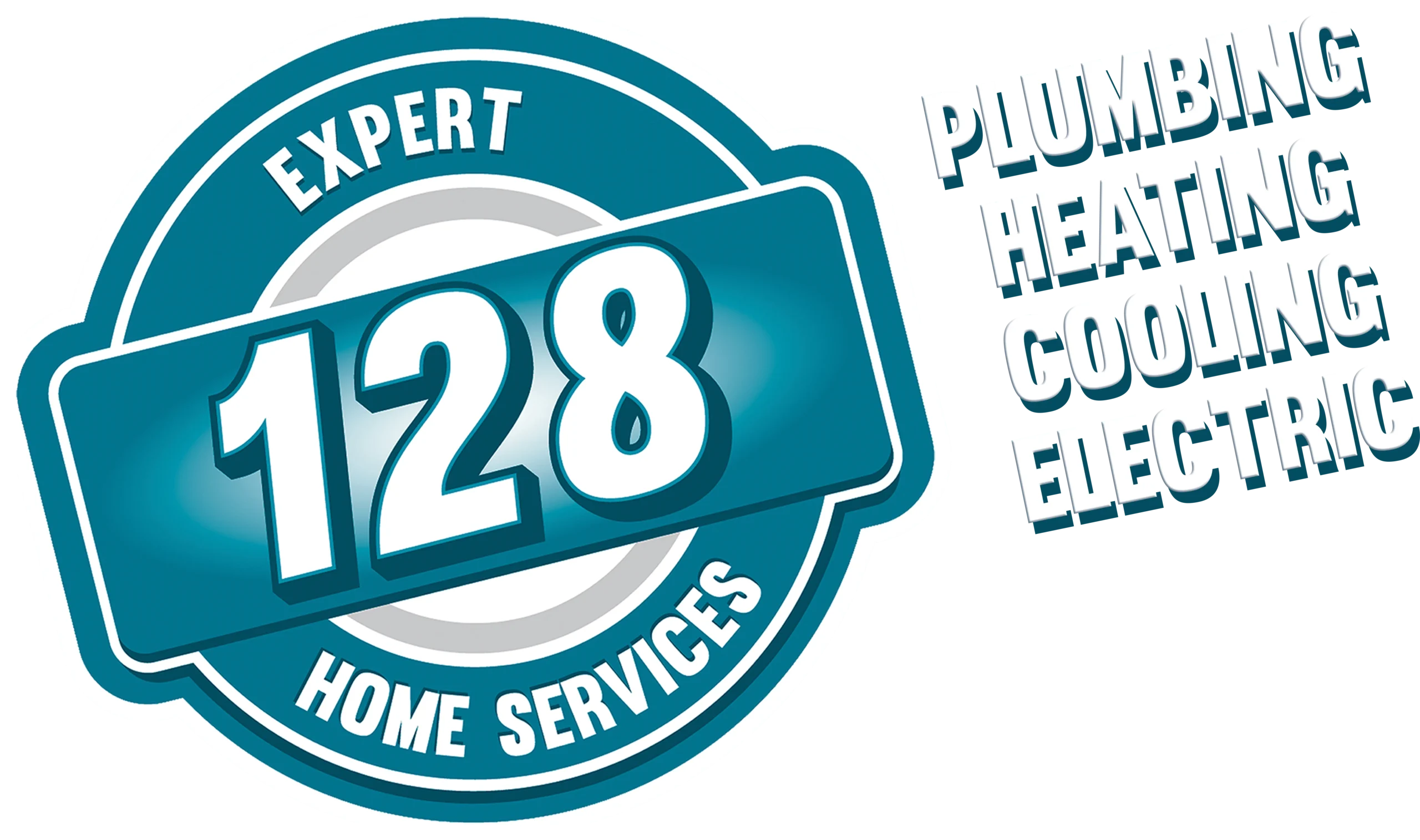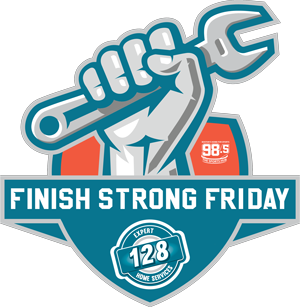
Is your sink or bathtub draining slowly? A clogged drain can cause frustration and inconvenience. We’ll cover everything you need to know about clogged drains – from common causes and signs to effective DIY fixes and when to seek our professionals for help.
Key Takeaways
- Common causes of clogged drains include hair, fats, oils, grease, food scraps, flushable wipes, and mineral buildup from hard water.
- DIY methods for unclogging drains include using boiling water, baking soda and vinegar solutions, plunging, and drain snakes, but persistent clogs may necessitate professional help.
- Preventative measures to avoid future clogs include using drain traps and covers, proper disposal of kitchen waste, and restricting toilet use to toilet paper and human waste, with 128 Plumbing, Heating, Cooling, & Electric offers expert services for severe issues.
Common Causes of Clogged Drains
Understanding what causes clogged drains is the first step toward prevention and effective maintenance. One of the most common culprits is hair. Whether it’s human hair or pet fur, it can bind with other sticky substances like soap scum and create a stubborn blockage, particularly in bathroom drains.
Fats, oils, and grease are another major cause of clogs. These substances can coat the walls of your pipes, trapping other debris and creating a tough clog. Soap scum, especially from bar soaps containing animal fat derivatives, can also accumulate and contribute to blockages over time.
Food scraps are a frequent cause of clogs in kitchen sinks. Items like coffee grounds and fibrous vegetables can build up and obstruct the flow of water. Even so-called ‘flushable’ wipes don’t dissolve easily and can cause significant blockages. Mineral buildup from hard water is another factor. Over time, minerals can accumulate along the pipe walls, particularly in areas with high mineral content in the water.
Mindfulness of what you put down your sink drains can significantly curtail the risk of clogs. Proper disposal of waste and regular maintenance can go a long way in keeping your drain system running smoothly.
Identifying a Clogged Drain
Early detection of a clogged drain can prevent severe plumbing issues and save you from costly repairs. One of the most obvious signs is slow-draining water. If you notice that your sink, bathtub, or toilet is taking longer than usual to drain, it’s likely that there’s a blockage somewhere in the drain pipe.
Standing water is another clear indicator. Whether it’s in your sink, bathtub, or even your toilet, standing water suggests that something is preventing the water from flowing freely down the drain. Unpleasant odors emanating from your drains can also signal a clog. These odors are often caused by trapped food particles or other debris that are starting to decompose.
Gurgling sounds are another telltale sign of a clogged drain. These noises occur when water struggles to navigate around a blockage, causing air bubbles to form and create a gurgling sound as they escape. Noticing these signs early on can help you tackle clogs before they escalate into more serious plumbing issues.
DIY Methods to Unclog Drains
When you encounter a clogged drain, there are several DIY methods you can try before calling in a professional. One of the simplest and most effective techniques is using boiling water. Pouring boiling water down the drain can assist in dissolving and dislodging minor blockages caused by grease or soap scum.
Another popular method involves using a baking soda and vinegar solution. Here’s how to clear a clogged drain using this method:
- Pour a cup of baking soda down the drain.
- Follow this by pouring a cup of vinegar to create a fizzy reaction.
- Let the mixture sit for about 15 minutes.
- Flush with hot water.
This natural drain cleaner can help break down organic material and clear up minor clogs in your bathroom sink drain, offering a safer alternative to chemical drain cleaners and reducing the need for a drain stopper.
Plunging is another effective way to tackle clogged drains, including a clogged sink drain. For sinks and toilets, a standard plunger can create enough suction to dislodge the blockage. Covering any overflow openings helps to maintain maximum pressure. If the clog is stubborn, you might need to use a drain snake, a flexible tool that can reach deep into the pipes to break up and remove the obstruction.
While these DIY methods can be quite effective, they might not work for every situation. If you find that your drain is still clogged despite your best efforts, it might be time to call in a professional to ensure the problem is fully resolved. That’s where our drain and plumbing professionals at 128 Plumbing, Heating, Cooling, & Electric come in.
Preventative Measures to Avoid Future Clogs
Prevention is always better than cure, especially when it comes to clogged drains. One of the best ways to prevent future clogs is by using drain traps and covers. These simple devices can catch hair and other debris before they have a chance to enter your pipes. Regularly cleaning your drain stoppers can also prevent the buildup of hair and soap scum that leads to blockages.
When bathing pets indoors, consider the following tips to prevent hair from clogging the drain:
- Place a washcloth over the drain to capture pet hair and prevent it from going down the drain.
- Brush your pet’s hair before bathing to remove loose hair.
- Brush your own hair before showering to reduce the amount of hair that ends up in the drain, minimizing the risk of clogs.
In the kitchen, be mindful of what goes down the kitchen sink. Here are some things to avoid:
- Pouring fats, oils, and grease down the drain, as these substances can solidify and cause blockages. Instead, dispose of them in a container and throw them away in the trash.
- Putting coffee grounds down the garbage disposal.
- Putting fibrous vegetables down the garbage disposal.
Lastly, restricting toilet use to only toilet paper and human waste is paramount. Other items, even those labeled as ‘flushable’, can cause significant clogs. By following these preventative measures, you can keep your drains clear and avoid the hassle of dealing with clogs.
Professional Help for Massachusetts Homeowners: When to Call 128 Plumbing, Heating, Cooling, & Electric
Although many clogs can be managed with DIY methods, situations do arise when professional assistance becomes necessary. For Massachusetts homeowners, 128 Plumbing, Heating, Cooling, & Electric is the go-to solution for stubborn drain issues. One major sign that you need professional assistance is if tree roots have invaded your sewer lines, causing blockages.
If you experience multiple clogs throughout your home, it might indicate a main sewer line issue. Recurring clogs that don’t resolve with DIY methods also warrant a call to the professionals. Urgent plumbing problems, such as a complete drain blockage that causes water to back up into your home, require immediate professional intervention.
128 Plumbing uses advanced diagnostic procedures like video camera inspections to identify and solve drain issues. Their expertise and specialized tools can handle even the most stubborn blockages that DIY methods can’t.
Beyond drain cleaning, 128 Plumbing, Heating, Cooling, & Electric offers a range of services, including:
- Plumbing
- Heating
- Air conditioning
- Electrical services
This makes them a one-stop-shop for all your home maintenance needs.
Contact 128 Plumbing for All Your Drain Services Needs
Scheduling an appointment with 128 Plumbing, Heating, Cooling, & Electric is easy and convenient. We offer 24/7 availability through phone, email, text, or website chat. With guaranteed services and accurate estimates, you can trust 128 to handle all your drain services needs with professionalism and expertise.
Frequently Asked Questions
What are the common causes of clogged drains?
Clogged drains are commonly caused by hair, fats, oils, grease, food scraps, and mineral buildup. Regular maintenance can help prevent these issues.
How can I identify a clogged drain early?
You can identify a clogged drain early by noticing signs such as slow-draining water, standing water, unpleasant odors, and gurgling sounds. Keep an eye out for these indicators to address the issue promptly.
What DIY methods can I use to unclog a drain?
You can tackle minor clogs by using boiling water, a baking soda and vinegar solution, and plunging techniques. Try these DIY methods to unclog a drain effectively.
What preventative measures can I take to avoid future clogs?
To avoid future clogs, use drain traps, clean regularly, and dispose of waste properly. These measures can help maintain a clear and functional drainage system.
When should I call a professional for a clogged drain?
You should call a professional for a clogged drain if you experience tree root invasions, main sewer line issues, recurring clogs, or urgent plumbing problems. These situations require expert assistance to resolve. 128 Plumbing, Heating, Cooling, & Electric can assist in unclogging drains for Massachusetts homeowners.


